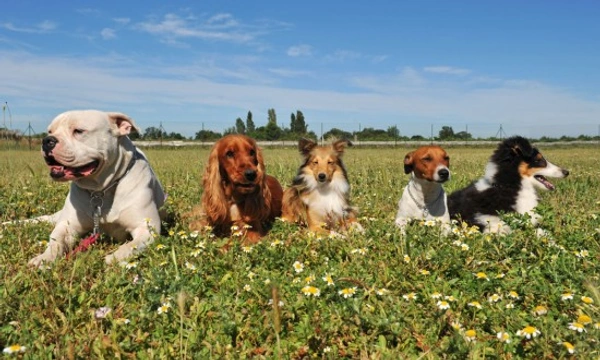
Responsible Pet Ownership: How Many Pets Is Too Many?
Welcoming pets into our lives is a joy that often starts with just one or two animals but can sometimes grow unexpectedly, as many passionate pet lovers find themselves caring for multiple companions. In the UK, numerous animals need homes, and it's kind-hearted to consider taking in more. However, responsible pet ownership is essential to ensure both the pets and owner thrive together.
Owning multiple pets or fostering them can make a real difference by reducing shelter populations and giving animals a safe, loving home. But, the question arises: how many pets is too many? This depends not on a fixed number, but on a range of practical factors including your living situation, resources, and the specific needs of your pets.
Assessing Your Capacity for Multiple Pets
Every pet owner should evaluate their circumstances carefully before deciding to increase the number of animals they care for. Here are crucial considerations to guide your decision.
1. Do You Have Enough Space?
Space requirements differ vastly among animal types. For example, keeping twenty pet mice may be manageable in terms of space and care, whereas the same number of dogs would be impractical. Ensure any cages, tanks, or hutches meet the species-specific needs for comfort and wellbeing.
For free-roaming pets like dogs and cats, there must be adequate room for sleeping, eating, exercise, and personal space. Insufficient space can lead to stress, aggressive behaviour, and health problems, especially when many animals are housed together in close quarters.
2. Do You Have Enough Time?
Caring for multiple pets requires a significant time commitment. Beyond feeding and cleaning, pets need daily interaction and bonding to thrive emotionally. Consider if your schedule allows you to provide the necessary attention without rushing or neglecting any animal.
Each pet has unique needs — for instance, dogs generally require regular walks and socialisation, while other animals might need specific environmental enrichment or handling time.
3. Can You Provide Financially?
Financial responsibility is equally vital. Routine costs include quality food, bedding, vaccinations, flea and worm treatments, and pet insurance. Veterinary care can become expensive, particularly with emergencies or chronic conditions.
It’s important to budget realistically for ongoing and unexpected expenses to ensure all your pets get the care they deserve, avoiding situations where financial strain compromises their welfare.
4. Legal and Housing Restrictions
Check for any pet ownership restrictions in your housing agreement or local council regulations. Many rented properties have limits on the number or types of pets allowed.
Some councils enforce caps on pet numbers per residence to prevent overcrowding and nuisance complaints. Exceeding these limits without permits can lead to penalties or forced rehoming of pets.
5. Consider Your Neighbours
Good neighbourly relations contribute significantly to a harmonious pet-owning environment. Pets can impact neighbours through noise, smells, or roaming freely. The potential for disturbances typically increases with more animals.
Maintaining open communication and addressing concerns promptly can prevent conflicts and ensures your pets remain welcome members of your community.
How Many Pets Constitute Too Many?
There is no universal number that defines "too many". Responsible pet ownership is about balancing your ability to provide quality care, complying with legal limits, and ensuring the wellbeing of all animals involved.
Too many pets occur when their care falls below acceptable standards or when local laws are violated. This includes situations where physical space, time, or finances become insufficient to meet animals’ needs.
Responsible Ownership Means Quality Over Quantity
The welfare of each pet should be the priority. It’s better to have a few animals with excellent care than many animals neglected due to overextension.
Potential owners considering multiple pets should prepare by understanding their personal limits in terms of capacity and by seeking advice from reputable sources, including veterinarians and animal welfare organisations.
Considering adopting from reputable breeders or rescue centres for puppies and kittens helps ensure you are prepared for responsible pet ownership.
Conclusion
Bringing more pets into your home is a wonderful act of kindness but should be tempered with awareness of your capability. Responsible pet ownership means thoughtfully evaluating space, time, financial resources, local laws, and community impact.
Before deciding to add "just one more" pet, reflect carefully on whether you can maintain a happy, healthy environment for all. This mindful approach protects your pets, your household, and your neighbours, ensuring many joyful years together.



